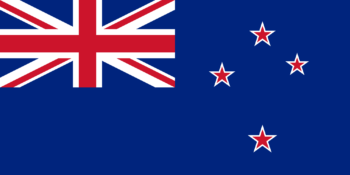
(Credit: Wikipedia)
Radio New Zealand, the New Zealand public broadcaster, wrongly attributed quotes to psychologist Michelle Levy, the broadcaster itself admitted.
Levy complained to the New Zealand Press Council over the May report, “Psychology, ‘very cold, robotic’ for Māori.” The article quoted her saying, “most psychologists in New Zealand are clueless about Māori values,” but she never said that. The Maori are indigenous people in New Zealand.
RNZ spokesperson John Barr told iMediaEthics by e-mail
“RNZ accepts the Press Council decision. RNZ takes its editorial responsibilities very seriously and acknowledged that the original story fell short of our own standards as set out in our editorial policies. RNZ reviewed its internal processes at the time of the original complaint and we are happy that we have taken the necessary actions.”
Levy was also upset about the caption for a photo on the story an the headline. According to the press council ruling, Levy complained as soon as she saw the story and the next day the caption was changed, and a note was added to the online and audio version to say it edited out quotes wrongly attribute to Levy. The headline was changed to “Psychology ‘very cold, robotic’ for Māori,”which changes the emphasis to how Maori experience psychology instead of saying psychologists are “very cold” and “robotic.”
By e-mail, Levy told iMediaEthics she is satisfied with the ruling and that she felt she had to hold RNZ accountable for the problems with the story. “One of my motivations for taking a complaint to Radio NZ and then to the Media Council (when I found RNZ’s initial response to my complaint wholly inadequate, and bordering on condescending and dismissive), was that I had spent a significant amount of time preparing for the RNZ interview,” she wrote to iMediaEthics. “I was well aware of a general mis-representation among mainstream media of Māori -focused issues, and even though the journalist himself was Māori (and as such I assumed would hold to an additional value of kaitiakitanga in terms of safeguarding the information I shared), I took great care in preparing for the interview.”
She added, “I was verty pleased by the Media Council’s ruling indicating that these princples are to be regarded as substantially more than tokenistic.” She did say she found the complaints process “somewhat lengthy, even for myself who has strengths in written critical analysis.,” and expressed concern the “complaints process is relatively inaccessible” to the general public. “This did make me wonder on the power balance and subsequent fairness and equity of this redress process and whether an advocacy type of service should be available to assist those who have grounds for a complaint but need assistance to create an argument and engage in the process.”
RNZ’s support services manager George Bignell admitted the story had problems but argued RNZ moved “reasonably quickly” to fix the problems. He told Levy “specifically the attribution of comments to you in the original story were not in fact accurate, but rather they were an attempt to paraphrase parts of the journalist’s interview with you, and that is regretted.”
The press council found it’s “inappropriate” for there to be any specific guideline and timeline for when a correction must be published, but still called for RNZ to issue a prominent correction. Attributing quotes incorrectly was “an egregious error by a journalist, an falls w ell short of best practice.”
‘In a case where a journalist has wrongly attributed factual statements to a person, any correction must point out the actual passages that were wrongly attributed and make clear they were never said by the person being interviewed.,” the council said.
The article in question now carries this note:
- “This story has been edited to remove comments wrongly attributed to Dr Michelle Levy. RNZ apologises for this error.
- “The Media Council has determined that the corrections to this article were inadequate and too slow. See the Media Council decision atwww.mediacouncil.org.nz/rulings/michelle-levy-against-rnz.”





